El Salvador has once again thrust itself into the global spotlight with a bold move in its cryptocurrency journey. On August 8, 2025, the country’s Legislative Assembly passed the Investment Banking Law, a groundbreaking piece of legislation that allows licensed investment banks to hold Bitcoin (BTC) on their balance sheets and offer crypto-related services to institutional and high-net-worth clients. This isn’t just another step in El Salvador’s Bitcoin experiment—it’s a seismic shift toward integrating digital assets into mainstream finance. As someone who’s watched the crypto space evolve, I can’t help but feel a mix of excitement and curiosity about what this means for El Salvador and the world. Let’s dive into how this law changes the game, its potential impact, and the challenges it faces.
A Bold Leap for Institutional Crypto Adoption
When El Salvador made Bitcoin legal tender in 2021, it was a radical move that had skeptics and enthusiasts alike buzzing. The focus then was on getting everyday folks—shopkeepers, taxi drivers, and small business owners—to use BTC for transactions. Fast forward to 2025, and the country is pivoting toward a new audience: big players with deep pockets. The Investment Banking Law creates a clear path for regulated financial institutions to dive into Bitcoin, marking a shift from grassroots adoption to institutional investment.
Under the new law, investment banks with at least $50 million in capital can apply for licenses to offer Bitcoin and digital asset services to “sophisticated investors”—those with at least $250,000 in liquid assets, such as BTC, tokenized bonds, or cash. This isn’t about your average Joe buying coffee with crypto; it’s about hedge funds, pension managers, and corporate treasuries getting in on the action. The law allows these banks to:
- Hold Bitcoin directly on their balance sheets.
- Issue tokenized securities and crypto-linked financial instruments.
- Provide services like asset management, structured financing, and cross-border transactions in BTC or other digital assets.
This framework builds on El Salvador’s existing crypto regulations, which already allow firms to register as Bitcoin service providers, digital asset service providers, or digital asset issuers. Now, investment banks can layer these licenses onto their existing ones, creating a seamless bridge between traditional finance (TradFi) and decentralized finance (DeFi). It’s like El Salvador is saying, “Come build your crypto empire here, but play by our rules.”
Bridging TradFi and DeFi: A Financial Revolution?
What excites me most about this law is its potential to blend the old and new worlds of finance. Imagine a bank offering a fixed-income portfolio with Bitcoin as collateral or a structured fund mixing blockchain-based yield strategies with traditional assets like bonds or gold. These hybrid products could attract global players looking for a regulated jurisdiction to experiment with crypto-based banking. As one fintech entrepreneur put it, El Salvador is positioning itself as the “Switzerland of Crypto”—a hub for innovation with clear, investor-friendly rules.
This isn’t just about Bitcoin. The law opens the door for banks to work with other digital assets, like stablecoins or tokenized securities, which could redefine how capital flows in and out of El Salvador. For example, Tether, the company behind the USDT stablecoin, has already acquired a digital asset service provider license in El Salvador and is reportedly moving its headquarters there. This signals confidence in the country’s regulatory environment and hints at broader adoption of crypto-based financial services.
But it’s not all rosy. The high entry barriers—$50 million in capital and a $250,000 minimum for investors—mean this is an exclusive club. Critics argue that the benefits may skew toward large institutions, leaving everyday Salvadorans, who’ve already shown lukewarm adoption (only 1% of remittances use crypto, and just 2 in 10 citizens report using it), on the sidelines. Still, the potential for billions in institutional capital to flow into El Salvador’s economy is hard to ignore.
El Salvador’s Vision: A Global Crypto Hub
El Salvador’s latest move is part of a broader strategy to cement its reputation as a global leader in financial innovation. Since adopting Bitcoin as legal tender, the country has launched Bitcoin-based bonds, set up geothermal-powered Bitcoin mining operations, and hosted international blockchain conferences. Now, with the Investment Banking Law, it’s doubling down on its ambition to be a regional financial hub. Lawmaker Dania González summed it up: “We are turning El Salvador into a specialized financial hub, generating an international reputation, institutional confidence, and competitiveness.”
The country is also forging global partnerships to bolster its crypto ecosystem. In July 2025, El Salvador signed a memorandum of understanding with Bolivia’s central bank to promote cryptocurrency use amid Bolivia’s dollar shortage. President Nayib Bukele also met with Pakistan’s crypto and blockchain minister to discuss Bitcoin adoption and energy policies for crypto mining. These alliances show that El Salvador isn’t just focused on domestic policy—it’s aiming to influence the global financial landscape.
The Market Responds: Bitcoin’s Bullish Signal
The timing of this law couldn’t be better for Bitcoin enthusiasts. As of August 10, 2025, Bitcoin is trading above $118,000, with a 1.34% increase in the last 24 hours and a 5.5% surge in trading volume, according to CoinMarketCap. Many see El Salvador’s move as a bullish signal, especially if other nations follow suit. If more countries allow banks to hold BTC, demand could skyrocket, potentially pushing prices toward the $130,000 mark some analysts predict.
El Salvador’s national Bitcoin reserves are also making waves. The government holds 6,262 BTC, valued at over $730 million, though the IMF notes that recent increases likely reflect transfers between state wallets rather than new purchases, per a $1.4 billion loan agreement. This hasn’t dampened enthusiasm, with some market strategists arguing that institutional adoption could unlock the “largest pool of capital in the world” for Bitcoin.
Navigating Challenges and Skepticism
Of course, this bold experiment isn’t without risks. The IMF, which has been skeptical of El Salvador’s Bitcoin push from the start, has tied its $1.4 billion loan to conditions like halting public-sector Bitcoin purchases and rolling back mandatory BTC acceptance for merchants. While El Salvador is complying (for now), President Bukele’s administration continues to promote Bitcoin through its Bitcoin Office, which claims to buy 1 BTC daily—though blockchain data suggests these are internal transfers.
Then there’s the volatility question. Bitcoin’s price swings are no joke, and critics worry that allowing banks to hold BTC could expose them to significant financial risks. The law’s strict capital and liquidity requirements aim to mitigate this, but only time will tell if they’re enough. Plus, global regulators in places like the U.S. and Europe may watch El Salvador’s experiment closely, deciding whether to emulate or resist it.
A Blueprint for the Future?
El Salvador’s Investment Banking Law isn’t just about one country—it’s a potential model for others. Smaller economies, especially those seeking to attract foreign investment, might look to El Salvador as a case study. By creating a regulated environment where crypto and traditional banking coexist, the country is challenging the narrative that cryptocurrencies are inherently risky or incompatible with mainstream finance. As one former central banker put it, “This is not a publicity stunt anymore. This is the foundation of a serious policy shift.”
Looking Ahead: El Salvador’s Crypto Gamble
El Salvador’s journey with Bitcoin has been a rollercoaster—technical glitches, public skepticism, and IMF pressure haven’t made it easy. Yet, with Bitcoin trading at record highs and institutional interest growing, the country’s persistence might just pay off. The Investment Banking Law could be the spark that ignites a global wave of institutional Bitcoin adoption, or it could face hurdles if regulatory or market challenges mount. Either way, El Salvador is proving it’s not afraid to take risks to reshape the future of finance.
As I reflect on this, I’m struck by the audacity of it all. El Salvador, a small nation with big dreams, is betting on Bitcoin to transform its economy and influence the world. Whether it’s a stroke of genius or a high-stakes gamble, one thing’s for sure: the world is watching.
Sources
- The Block: El Salvador’s new bitcoin law signals shift from retail adoption to institutional investment
- HOKANEWS: El Salvador Passes Landmark Law — Banks Can Now Invest Directly in Bitcoin
- CryptoNinjas: El Salvador Opens Door for Fully Bitcoin-Based Banks
- CryptoTimes: El Salvador Shifts Bitcoin Focus to Institutional Investors
- CryptoBriefing: El Salvador passes law to allow investment banks to offer Bitcoin and digital asset services
- FinanceFeeds: El Salvador Opens Door to Bitcoin Investment Banks With New Law
- Yahoo Finance: El Salvador courts crypto’s deepest pockets with new banking law
- CoinGabbar: El Salvador Bitcoin Law Lets Banks Hold and Offer BTC
- CoinTribune: El Salvador Paves the Way for Bitcoin Investment Banks
- Bitcoin News: New Investment Bank Law in El Salvador Opens Doors to Bitcoin Products



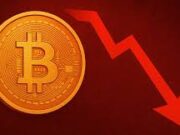







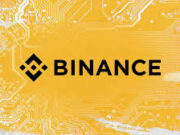








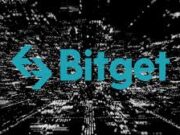
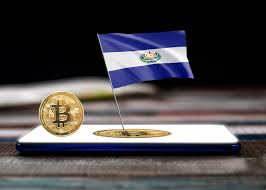

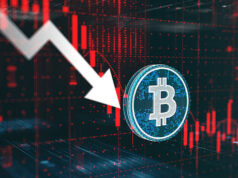
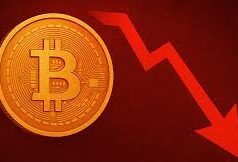



Think this’ll bring in big crypto whales?
do they just hold BTC instead of dollars? Max Keiser’s hyping this up big time
$50M capital to start and all-in on BTC? That’s a huge move
How do these banks keep deposits safe if prices crash? And what’s with the IMF whining about it?
El Salvador launching Bitcoin-only banks is straight-up wild!